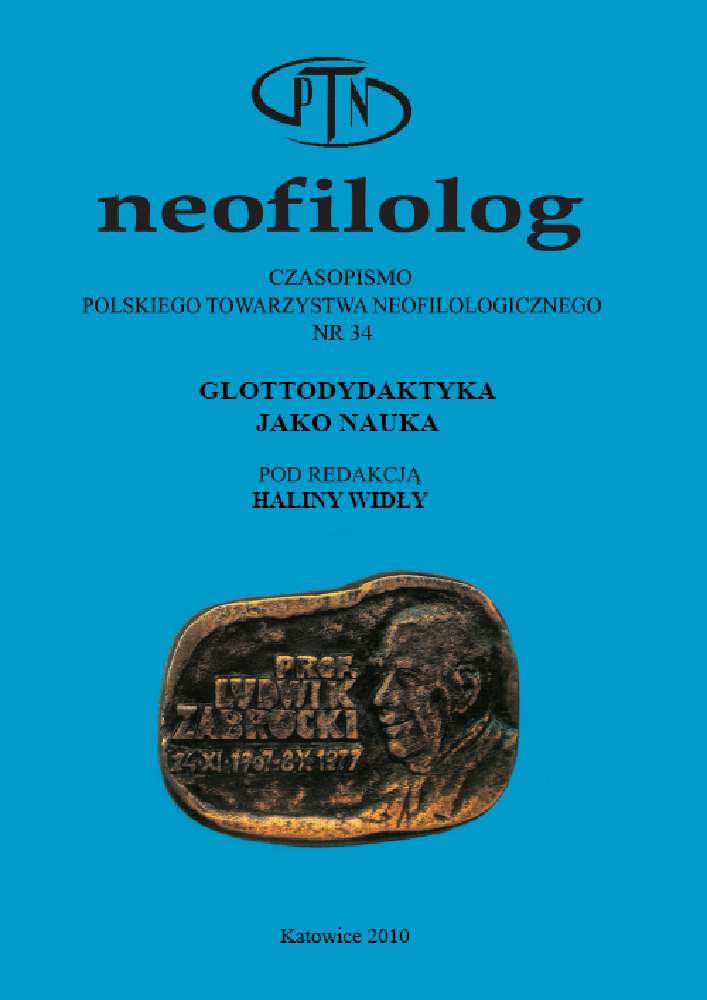Abstract
The classic experiment is one of the most important research methods in glottodidactics. The classic experiment must fulfill two conditions, namely control and experimental groups must be formed and subjects must be assigned to these groups at random. If one of these conditions, namely randomization, is not met, the research method is called quasiexperimental. If none of the conditions is met the method is called pre-experimental. In fact, the pre-experiment is probably most often used in research on teaching and learning foreign languages because, just like the true experiment, it allows the researcher to draw conclusions about the cause and effect relationship between particular variables and, at the same time, it is more practical than the true experiment. The aim of this paper is to present the experimental procedure consisting of ten steps proposed by Clegg (1994).
References
Augustyńska, U. 2003. Statystyczna analiza danych w badaniach pedagogicznych z wykorzystaniem programu Statistica. Częstochowa: Wydawnictwo Wyższej Szkoły Pedagogicznej w Częstochowie.
Brown, H. D. 1991. Understanding Research in Second Language Learning. A Teacher’s
Guide to Statistics and Research Design. Cambridge: Cambridge University Press.
Clegg, F. 1994. Po prostu statystyka. Kurs dla studentów nauk społecznych. Warszawa: WSiP.
Hatch, E. i H. Farhady. 1982. Research Design and Statistics for Applied Linguistics. Rowley, Mass.: Newbury House.
Hatch, E. i A. Lazarton. 1991. The Research Manual. Design and Statistics for Applied Linguistics. Rowley, Mass.: Newbury House.
Larsen-Freeman, D. and M. Long. 1991. An Introduction to Second Language Acquisition Research. New York: Longman.
License
Copyright (c) 2010 Katarzyna Rokoszewska

This work is licensed under a Creative Commons Attribution-NoDerivatives 4.0 International License.
Authors
Authors of texts accepted for publication in Neofilolog are required to complete, sign and return to the Editorial team’s office the Agreement for granting a royalty-free license to works with a commitment to grant a CC sub-license.
Under the agreement, the authors of the texts published in Neofilolog grant Adam Mickiewicz University in Poznań a non-exclusive, royalty-free license and authorize the use of Attribution-NoDerivatives 4.0 International (CC BY-ND 4.0) Creative Commons sub-license.
The authors retain the right to the free disposal of the work.
Users
Interested Internet users are entitled to use works that have been published in Neofilolog since 2017, under the following conditions:
▪ attribution – obligation to provide, together with the distributed work, information about the authorship, title, source (link to the original work, DOI) and the license itself.
▪ no derivatives – the work must be preserved in its original form. Without the author's consent, it is not possible to distribute the modified work in the form of translations, publications, etc.
Copyrights are reserved for all texts published since 2017.
Miscellaneous
Adam Mickiewicz University in Poznań retains the property right as a whole (layout, graphic form, title, cover design, logo etc.).
